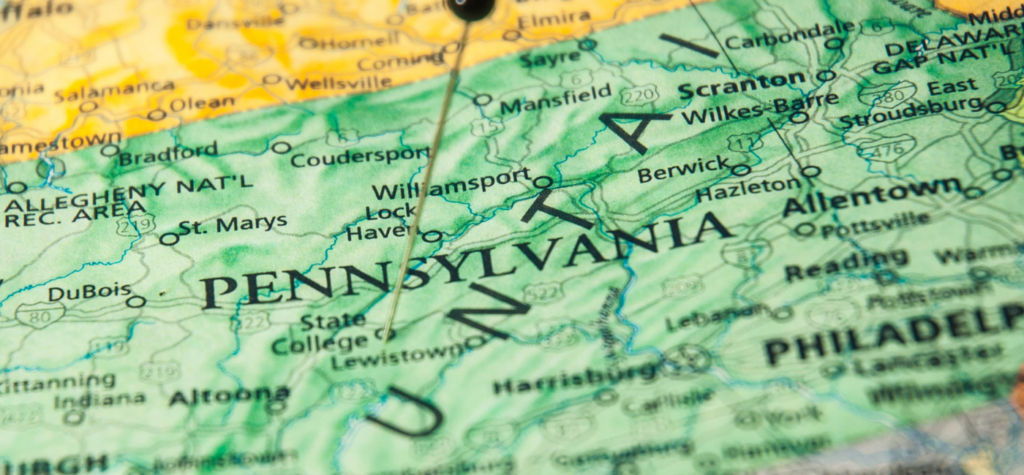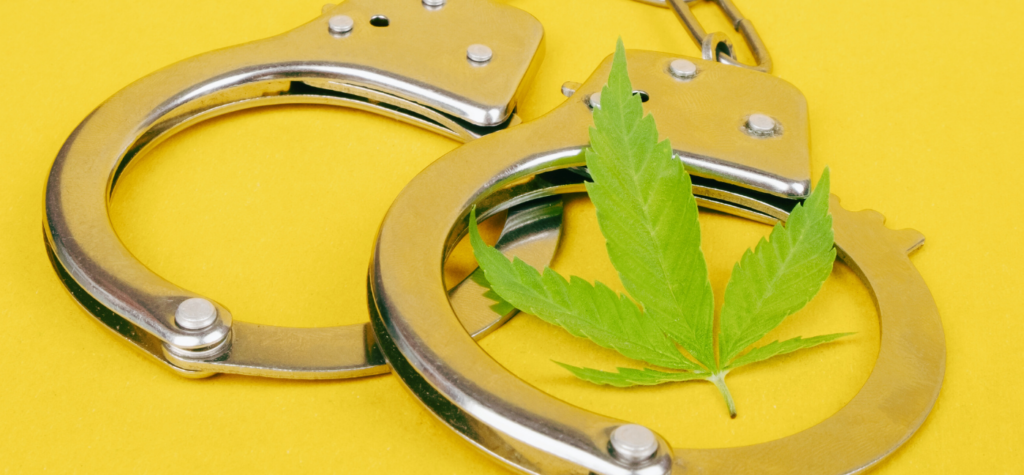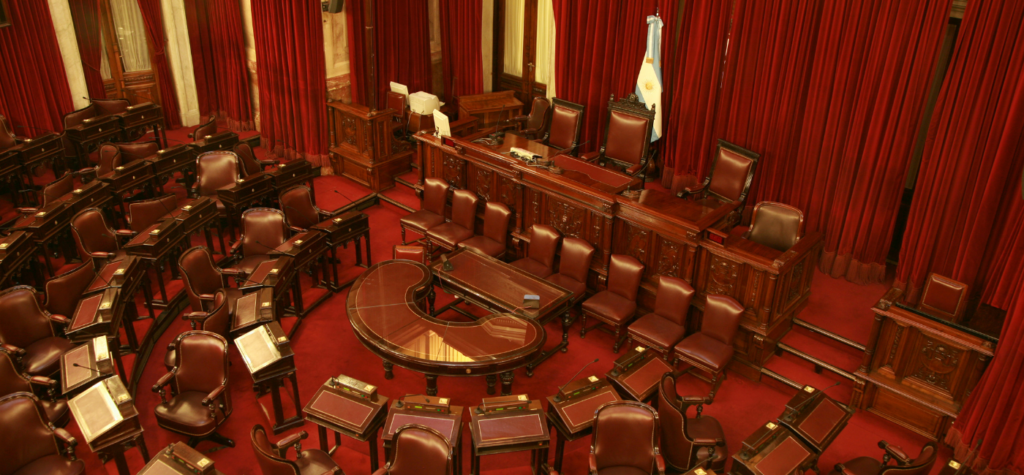Adult Use Cannabis in Pennsylvania: How Close Is It, Really? — Part 1: The Governor Calls for Adult Use

In this 2-part series, we investigate the possible legalization of adult use cannabis in Pennsylvania. Part 1 examines the two bills being currently debated by the state legislature and compares the fees, taxes, and social equity aspects of each. Part 2 investigates the concerns and controversy surrounding each bill and tries to answer the question: How close is adult use legalization in Pennsylvania?
Part 1 — The Governor Calls for Adult Use Cannabis in Pennsylvania
When “Colonel” Edwin Drake moved to Titusville, Pennsylvania in 1857 and began searching for oil, many of the local people thought he was crazy. Hired by the newly formed Seneca Oil Company because of his likeability and optimism rather than for any technical abilities, Drake began by digging trench after trench, the usual method back then, each time anticipating that this dig would be the one that started the rich black gold flowing. But his efforts met with failure.
So too has Pennsylvania’s cannabis industry seen its share of setbacks and false starts in its attempts to legalize adult use.
We’ve Been Here Before
On February 6, 2024, Governor Josh Shapiro called for the legislature to provide him with a bill approving adult use, to be effective July 1, 2024, with licensed shops launching sales starting January 1, 2025. The governor’s budget proposes a tax of 20 percent on the wholesale price of cannabis products, which would be run through the state’s liquor store system. It estimates adult use cannabis will bring in $250 million in annual revenue within five years. The governor’s announcement has produced much excitement in the cannabis community. Many anticipate that adult use cannabis in Pennsylvania must be just around the corner.
However, we’ve been here before. In 2018, then Governor Tom Wolf tweeted, “I think it is time for Pennsylvania to take a serious and honest look at legalizing recreational marijuana.” Wolf then followed this up with a 70-stop tour in 2019, visiting all 67 counties, and gathered input for his vision. After the tour, he announced that 68% of Pennsylvanians supported adult use. He asked for the legislature to decriminalize cannabis, expunge prior convictions, and consider legislation to legalize adult use. In 2020, Wolf held a press conference and called for the legislature to act. Then … nothing.

Digging Deeper
To understand the dynamics at play in the adult use cannabis movement in Pennsylvania, and to correctly predict the timeline for success, we must follow Edwin Drake’s example. Once the Colonel realized that trench-digging wouldn’t work, he studied the land and determined a deeper-dig was needed.
We too must dig deeper and study the competing visions being presented for Pennsylvania’s adult use cannabis. It’s also important to note that times have changed since former Governor Wolf pushed for adult use. At that time, both houses of the state legislature were against it. Now, the majority of the House of Representatives supports adult use, while a majority of Senators still oppose it.
House Bill 1080
Representative David Delloso introduced House Bill 1080 on May 2, 2023, which would legalize adult use cannabis and allow it to be sold through the current state store system. The bill’s memorandum notes that, “A Pennsylvania Auditor General report projects that [adult-use] cannabis could be an $1.66 billion industry that generates hundreds of millions in tax revenue.”
HB 1080 legalizes cannabis and provides for its adult use purchase. The 19-page document also creates a 10% gross receipts cultivation tax and a 19% excise tax on retail sales for a comparatively high rate of taxation (see tax comparison table below). HB 1080 allows for expungement of any arrest or conviction under the state’s Controlled Substance Act.

Pennsylvania is an alcoholic beverage control state, and most of the state’s wine and liquor consumed off-premises (non-restaurant) are sold through the 600-plus state-owned Fine Wine & Good Spirits stores. (Restaurants may sell beer to be taken home.) If HB 1080 passes, the sales of adult use cannabis and any profits associated with those sales would belong exclusively to the state.
The same day it was introduced, HB 1080 was referred to the House Health committee, where it has only recently begun to be discussed, with testimony on adult use heard in November and December of 2023 as well as information presented in March 2024 on the criminal justice implications of adult use cannabis legalization.
Senate Bill 846
On May 9, 2023, Senators Dan Laughlin and Sharif Street, representing both sides of the political aisle, introduced Senate Bill 846. SB 846 is a 224-page document (compared to HB 1080’s 19 pages) and goes into much greater detail to spell out its adult use cannabis plans for Pennsylvania.
SB 846 differs fundamentally from HB 1080 in that it provides for the adult use sale of cannabis through the state’s existing medical cannabis system, which includes 178 dispensaries. In addition, it allows for an 8% sales tax on cannabis products, which is 2% more than the standard sales tax, coupled with a 5% excise tax, for a total combined cannabis-specific tax rate of 7% of the retail sale price.
SB 846 was referred to the Senate Law & Justice committee the same day it was introduced and has not seen movement since then.

License Fees Compared
HB 1080’s license fees are much less expensive than SB 846’s. HB 1080 allows for an application fee of not more than $5,000 and annual fees of $700.
SB 846 has two sets of fees, one for grower/processors and another for dispensaries. Grower/processors would have an application fee of $10,000, an initial permit fee of $200,000 (refundable if not approved), and a $10,000 annual renewal fee. SB 846 also requires that the grower/processor have $2,000,000 in business capital, $500,000 of which must be on deposit with a financial institution.
Dispensaries under SB 846 fare better, but the fees are still higher than HB 1080. Dispensaries under SB 846 would have an application fee of $5,000, an initial permit fee of $30,000 per location (refundable if not approved), and a $5,000 annual renewal fee. SB 846 requires that the dispensary have $150,000 in business capital on deposit with a financial institution.
Comparing Taxation
As the markup on cannabis products for retail sale is sometimes significantly more than 100% of the wholesale price, this rate of 7% of retail sales could end up being similar to Governor Shapiro’s 20% tax on the wholesale price of cannabis products. Both would be significantly less taxation than HB 1080.
| Governor Shapiro | HB 1080 | SB 846 | |||||
| Wholesale Cannabis Price | $ 50.00 | $ 50.00 | $ 50.00 | ||||
| Wholesale Cannabis Tax % | 20% | 10% | 0% | ||||
| Wholesale Cannabis Tax $ | $ 10.00 | $ 5.00 | $ – | a | |||
| Total Wholesale Price | $ 60.00 | $ 55.00 | $ 50.00 | ||||
| Retail Markup (100%) | $ 60.00 | $ 55.00 | $ 50.00 | ||||
| Retail Price Before Tax | $ 120.00 | $110.00 | $ 100.00 | ||||
| Retail Cannabis Tax % | 0% | 19% | 7% | ||||
| Retail Cannabis Tax $ | $ – | $ 20.90 | $ 7.00 | b | |||
| Total Cannabis Tax Paid | $ 10.00 | $ 25.90 | $ 7.00 | a+b | |||
| Comparison of three adult use cannabis tax proposals. | |||||||
As we noted in a recent commentary on New York’s proposal to cut their state’s cannabis excise tax, studies have shown consumers are willing to pay no more than a 10% to 15% premium over the illicit market to purchase state-legal cannabis. SB 846, at 7%, would be most likely to support a strong legal adult-use market, while Governor Shapiro’s suggested 20% wholesale tax (equivalent to 10% retail if a business does a 100% markup) would push a legal business right to the edge but might not cause consumers to seek out the illicit marketplace. HB 1080 would be a business-killer.

Social Equity Aspects of Each Bill
Both bills contain social equity provisions, although HB 1080 only allows for expungement of possession convictions.
SB 846, however, spells out a detailed social equity program for disadvantaged businesses which include fee waivers and grants or low-interest-rate or zero-interest rate loans from a Cannabis Business Development Fund. SB 846 defines a “social and economic equity applicant” as one with a maximum annual income of $75,000 or having financial assets less than or equal to $250,000. The disadvantaged applicant must also have at least 75% ownership and control by one or more individuals who have (a) resided for five of the last ten years in a disproportionately impacted area, or (b) been arrested for or convicted of cannabis possession, or (c) are members of a family that has had a member that has been arrested for or convicted of possession.
Summary
HB 1080 and SB 846 vary widely, with HB 1080 calling for a significantly higher level of taxation of sales than SB 846, while SB 846 would cost cannabis businesses significantly more in application and annual fees. SB 846 also offers much more in terms of a social equity program. Finally, HB 1080 would allow for cultivation by private companies but would funnel all retail sales through the state’s Fine Wine & Good Spirits stores. SB 846 would leave all of adult use cannabis in the hands of private industry, with cultivation and retail sales administered by the state’s existing medical cannabis system, which includes 178 dispensaries.
Up Next: Adult Use Cannabis in Pennsylvania — Part 2
Both bills have their supporters and detractors. In order to have a clear understanding of the future of adult use cannabis in Pennsylvania, we’ll need to take a look behind the scenes and find out who each bill’s stakeholders are and understand their aspirations and concerns. We’ll cover this in Part 2.
This series by 420CPA is also proudly featured by Marijuana Venture Magazine.
About Rachel Wright and 420CPA
420CPA provides accounting, tax, and consulting to small to medium sized cannabis companies along the vertical and in varying stages of maturity in their business growth. Rachel Wright CPA and her team guide founders, their management team, investors, and adjacent professionals to successfully navigate the complexities of the tax landscape and to achieve their financial objectives.





